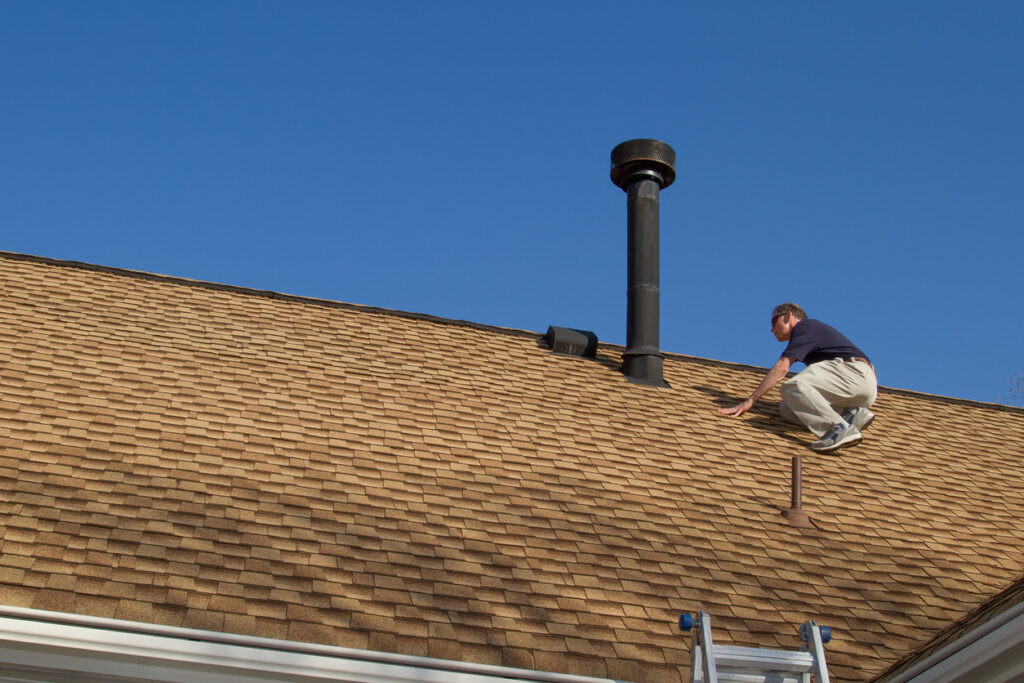How Forensic Roof Testing Ensures Optimal Roof Performance in Texas
The harsh and unpredictable climate of Texas demands robust roofing systems capable of withstanding a wide range of weather conditions. For commercial properties, ensuring the integrity of the roof is not just a matter of comfort but also a crucial aspect of protecting valuable assets. This is where forensic roof testing steps in as a critical tool in evaluating and fortifying commercial roofs for optimal performance.
The Importance of Roof Testing and Maintenance
Regular roof assessment and maintenance stand as the cornerstone of responsible property ownership and facility management. A roof is a critical shield, protecting a structure from the harsh elements, be it scorching sun, torrential rains, or heavy snowfall. Without proper upkeep, it’s susceptible to wear and tear, potentially leading to costly repairs or even premature replacement.
Early detection of issues is paramount. Minor problems, if left unattended, can escalate into major, expensive repairs. Regular assessments enable the identification of these concerns while they’re still manageable. This proactive approach not only saves money but also extends the lifespan of the roof, ultimately enhancing the value of the property.
Moreover, a well-maintained roof ensures the uninterrupted flow of business operations. Leaks or structural issues can disrupt workflow, damage equipment, and compromise the safety of occupants. Regular maintenance, including thorough inspections and specialized testing, helps identify potential weak points before they lead to these disruptions.
From a financial standpoint, the benefits of regular maintenance are substantial. It can significantly reduce energy costs by ensuring the roof’s insulation and ventilation systems are functioning optimally. Additionally, a well-maintained roof preserves property value, making it more attractive to potential buyers or tenants.
Ultimately, regular roof assessment and maintenance represent a strategic investment in the longevity, resilience, and value of a property. It’s a prudent approach that pays dividends in terms of cost savings, operational continuity, and the protection of valuable assets.
Understanding Forensic Roof Testing
Forensic roof testing stands as a meticulous and thorough evaluation methodology, distinguished by its capacity to unearth concealed vulnerabilities within a roofing structure. Unlike routine inspections that often concentrate on superficial concerns, forensic testing operates at a profound level. Its primary objective is to trace the origins of any issues, affording an in-depth comprehension of the roof’s overall condition.
This process encompasses a multi-faceted approach, starting with a comprehensive visual assessment of the roof’s surface. However, its true power lies in the subsequent steps. Beyond the initial inspection, forensic testing employs specialized techniques that transcend conventional methods.
The Detailed Process
A comprehensive roof assessment is a multifaceted endeavor, encompassing a series of meticulous steps to guarantee the robustness and longevity of your roofing system.
- Initial Inspection: The process begins with a meticulous initial inspection. This involves a visual assessment of the roof’s surface, looking for any visible signs of damage, deterioration, or potential weak points. This critical step sets the foundation for the comprehensive evaluation that follows, ensuring no detail goes unnoticed in the pursuit of a structurally sound roofing system.
- Moisture Detection: Forensic testing often includes specialized techniques to detect moisture within the roofing system. This is crucial in identifying areas that might be susceptible to leaks or water damage. By pinpointing these potential vulnerabilities early on, we can take targeted measures to fortify the roofing system and prevent future issues from arising.
- Core Sampling: This is a pivotal step in forensic testing. It involves extracting samples from various sections of the roof. These samples are then analyzed to evaluate the condition of the roofing materials, including potential signs of degradation, moisture content, and structural integrity. This in-depth analysis provides critical insights into the health and integrity of the roofing system, allowing for precise recommendations and targeted maintenance strategies.
- Non-Destructive Testing: In addition to core sampling, non-destructive testing methods may be employed. These techniques, such as infrared thermography or nuclear moisture meters, can reveal hidden issues without causing further damage to the roof. This advanced approach ensures a thorough assessment, uncovering potential vulnerabilities that may not be immediately visible.
- Analysis and Evaluation: The data collected from core samples and non-destructive testing is meticulously analyzed. This involves assessing the condition of the roofing materials, identifying any signs of delamination, moisture infiltration, or other structural concerns. This detailed analysis forms the basis for informed recommendations and targeted remediation strategies.
- Root Cause Identification: One of the key objectives of forensic testing is to pinpoint the underlying causes of any issues detected. This could include factors like improper installation, material failure, or long-term wear and tear. Identifying these root causes is crucial in implementing effective solutions and preventing recurring problems in the future.
- Recommendations and Remediation: Based on the findings, recommendations for necessary repairs or maintenance measures are provided. These are tailored to address the specific issues identified during the testing process. This customized approach ensures that the proposed solutions are precisely aligned with the unique needs and conditions of the roofing system, maximizing their effectiveness in fortifying its integrity.
Ensuring Optimal Roof Performance in Texas
In a state where weather extremes are common, the insights gained from forensic roof testing are invaluable. By uncovering hidden vulnerabilities and identifying the root causes of issues, property owners and managers can take targeted action to fortify their roofing systems. This proactive approach not only prevents costly repairs down the line but also ensures that the roof is equipped to handle the rigors of the Texan climate.
From preventing leaks and water damage to extending the lifespan of the roof, forensic roof testing plays a crucial role in maximizing the performance of commercial roofs in Texas. It’s a strategic investment that offers long-term benefits in terms of both cost savings and the protection of valuable assets.
Forensic roof testing is a comprehensive and invaluable tool in evaluating and fortifying commercial roofs for optimal performance, particularly in the challenging climate of Texas. By going beyond surface-level inspections and uncovering hidden vulnerabilities, property owners can take targeted action to ensure the longevity and resilience of their roofing systems. With the insights gained from forensic testing performed by CORE Forensics, businesses can navigate the Texan weather with confidence, knowing their assets are well-protected.

